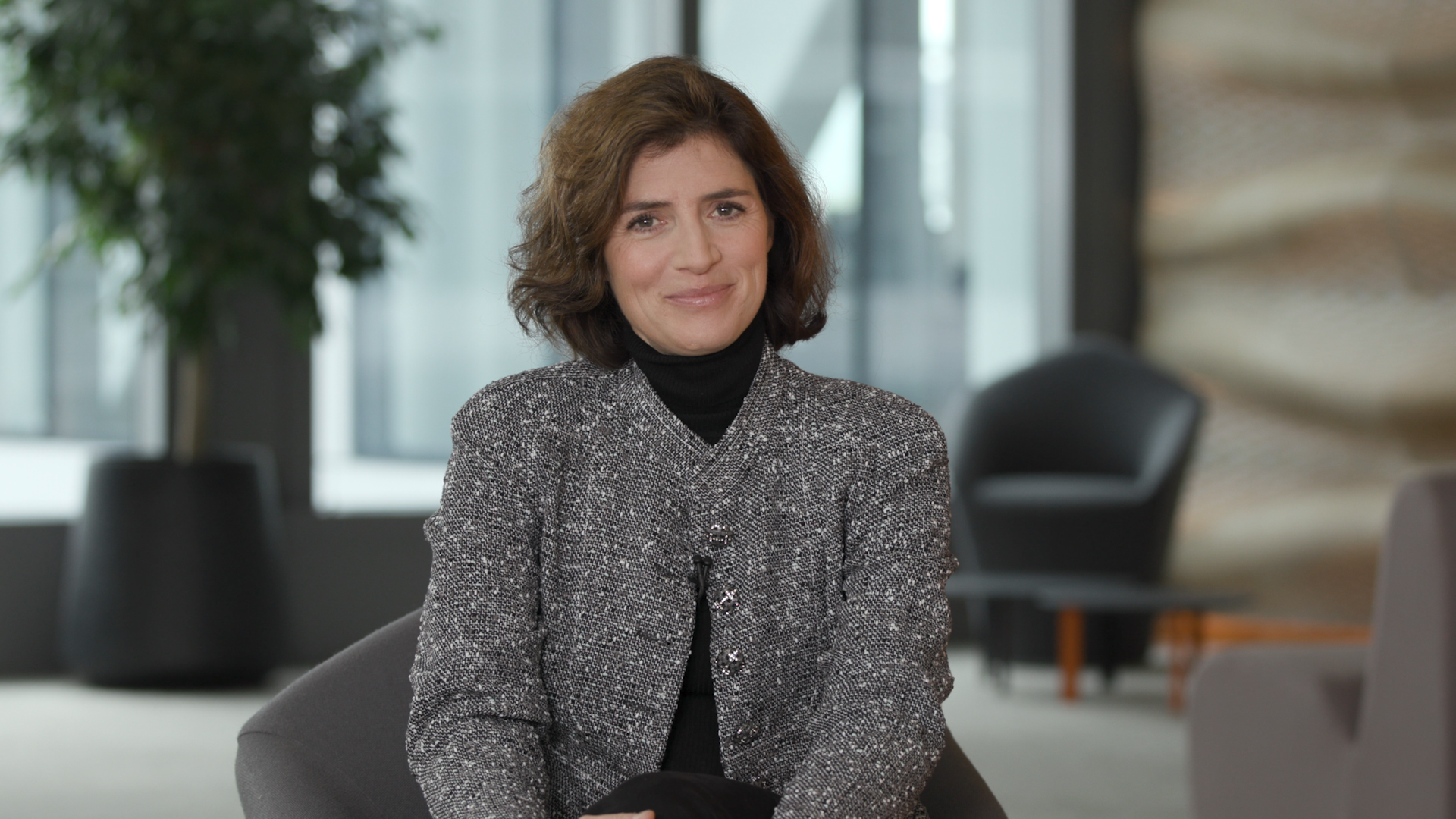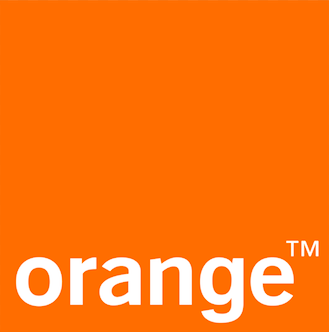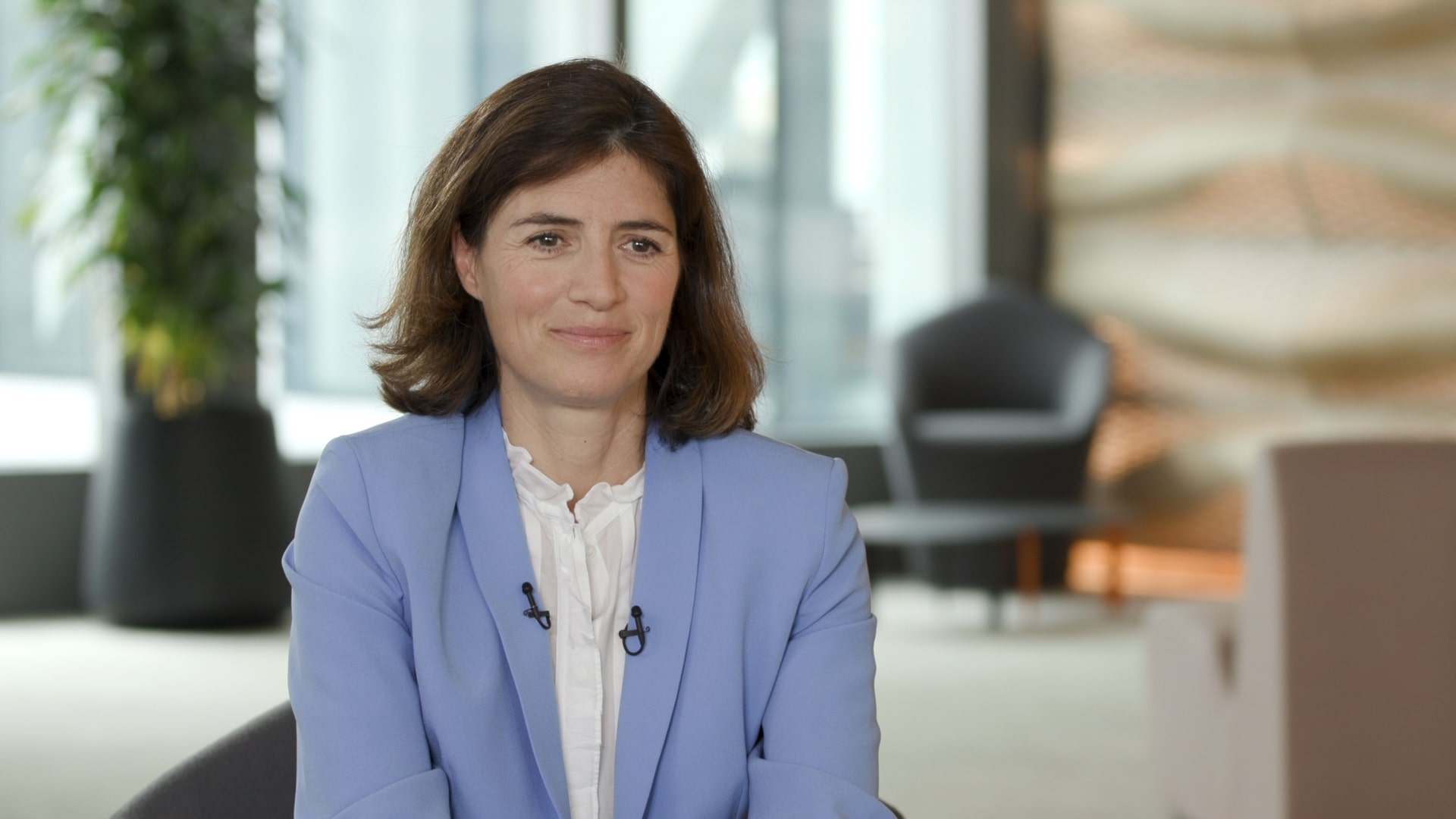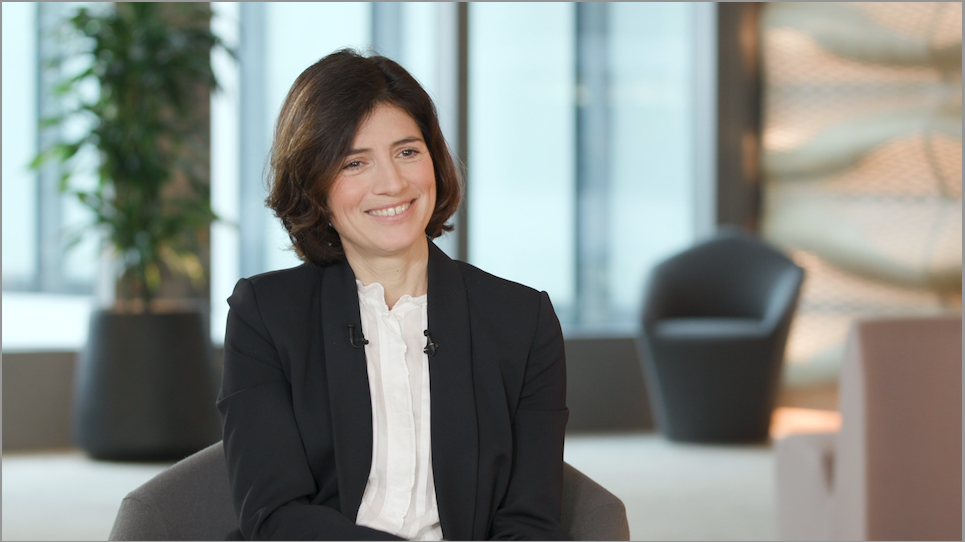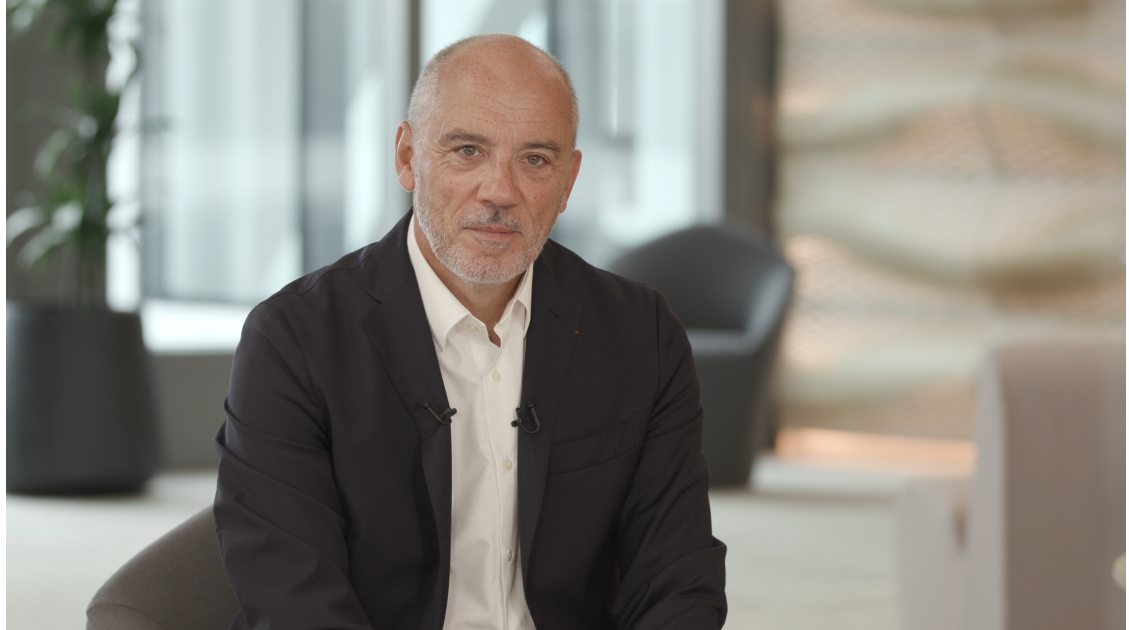EuroBusiness Media (EBM): Orange is the no. 1 French telephone operator and a leader in Europe. You have just published your H1 earnings. Stéphane Richard, you are Chairman and CEO of Orange. What comments do you have on your H1 earnings, and what can or should the market learn from them?
Stéphane Richard: Orange had a very good H1 2015. You can see that in the Group’s stable sales over the full half-year period, excluding the impact of regulations. This hadn’t happened in several years. EBITDA is also stable, excluding the impact of regulations. Looking more closely, we can see that Q2 really set the trend. This is very encouraging because our revenues grew slightly in Q2, excluding the impact of regulations. This is the first time that’s happened too in several years. EBITDA also grew slightly, excluding the impact of regulations. So the underlying trend is positive and promising, I think, for the coming quarters. This result vindicates our efforts.
Our efforts in two areas, specifically. Firstly, in costs. We have been reducing all of our costs for several years now. Managers and employees alike have been concentrating on making a significant impact, and have not let up. This is important. Overall, the reduction in indirect costs has remained high. Every indirect cost line item has been reduced, reflecting our efforts.
Of course, staffing levels have also changed. At the Group level, the workforce has declined by 4%, and is on a trajectory of steady reduction. The first important message is that Orange is focused on optimising its cost base. This is a multi-year effort, in which Q1 2015 represented a new, very important step.
The second message is about capital expenditure. We made a choice – confirmed in our Essentials 2020 plan – to invest heavily in modernising our networks and more specifically in deploying very high-speed fixed and mobile broadband. In the current digital revolution, the first thing users expect their operator to offer is the best technology, i.e. very high-speed fixed and mobile technology, as quick as possible and at the most competitive terms. Orange will devote considerable capex – a total of €15 billion by 2018 – 60% of which will go into networks, and this strategy is paying off. This is what must be emphasised.
Mobile 4G has been a big commercial and popular success everywhere. Our 4G coverage in the major European countries has made us the market leader. For example, our coverage is 95% in Belgium, over 80% in Spain and nearly 80% in France, where we are also in the lead. We will soon have 5 million 4G customers. 40% of data traffic in France now passes through the 4G network. So 4G has been very successful, both technologically and business-wise. In the fixed segment, our major project is fibre optics, first and foremost in France, where we are the driving force behind deployment.
One figure will illustrate my point. In H1 2015, Orange deployed nearly 500,000 new fibre optic connections. The second operator, whom I will not name, deployed 40,000. So we are way out in front. We now have more than 700,000 fibre optic customers, and have been hugely successful. As a result, our share of new business in the fixed broadband market in Q2 2015 was over 40%. This has not happened in a long time; I think it’s even an all-time record.
These figures show that the Group has been very perseverant and well-organised in its efforts; methodical, too, regarding costs and capex. The result has been very positive new business momentum enabling us to strengthen our positions in our principal countries.
EBM: A look at recent company news gives the impression that M&A activity was quite frenetic in the last quarter, in both directions. Has Orange changed from a “fragile giant” to an “agile predator”?
Stéphane Richard: An “agile giant”, maybe, that would be good. I have always said that our portfolio needed to breathe and that we shouldn’t hesitate to review it regularly and act on situations in certain countries that no longer correspond to our long-term objectives, either because our position is too weak or because the country’s telecom sector is such that we won’t be able to become a leader. So that’s our approach.
In H1 2015 we exited from certain countries: Uganda, and we have recently announced a plan to exit from Armenia. We are also in discussions to sell our stake in EE, the UK operator, which incidentally will make us a BT shareholder. I think we have really shown that we are pragmatic and capable of acting rapidly on situations that no longer suit us in certain countries.
Conversely, Orange has also been active in taking advantage of growth opportunities. I’m thinking of Africa in particular, with our recently announced entry into exclusive negotiations with Bharti Airtel to acquire their operations in 4 new African countries. This represents 10 million customers and €600 million in revenues. I would say that this will strengthen Orange’s position in Africa.
In addition, we have created a holding company that will cover all our activities in Africa and the Middle East. This will give much more visibility to our African activities, which have grown considerably in recent years. It will also be very useful in future for pursuing this growth, for possibly bringing in new partners or for seeking a listing. We haven’t decided to do this, but creating the vehicle will make it possible.
I would also like to emphasise the acquisition of Jazztel in Spain, a major transaction representing an investment of more than €3 billion. Firstly, this transaction went off without a hitch. We announced it in September 2014 and it’s now a done deal. We’re now in the integration phase. The buyout was very successful – 95% – and this is a great project, which brings together Orange and Jazztel in Spain, the Spanish market’s two big success stories in recent years. It’s going to be an incredible company, very fast growing, the best of the mobile and fixed worlds. I think it’s a step forward in the strategy of consolidation and convergence in Europe, which is a plus for our Group.
EBM: Now that you mention consolidation strategy, in France or in Europe, you seem to have a sort of dual strategy, you’re hanging back in France and looking more towards the rest of Europe. Could you please elaborate?
Stéphane Richard: In France, you have to recognise that we are the historical operator, by far the leader in fixed and mobile. That doesn’t put us in an ideal position for participating in consolidation, if only for anti-trust reasons.
That doesn’t change the assessment I have been expressing for a long time, that the four-operator French market is not sustainable in the long term. With the capex required, in particular in deploying fibre optic cables, and the arrival of new mobile technologies, France will have to move towards some form of consolidation. It’s already happening in Germany, the UK, Spain – I’ve spoken about this in the past – and might soon come to Italy. But Orange’s position in France doesn’t allow it to be an active participant in this consolidation. We came to a very operational conclusion on this, meaning that we have built our French strategy on the basis of an “as is” market. And it’s working.
Orange is the French operator that needs such a consolidation the least. The others might have more need for it than we do. I think it would be positive for market balance, but we are the company that can continue to operate and grow without consolidation. Now, in Europe, you know the situation, there are obviously way too many operators. I think everyone recognises that now. Consolidation is already underway; it will continue, as will fixed-mobile convergence.
Mobile-only companies are becoming increasingly rare in Europe, and I think that in the coming years, it will only get more difficult to develop a strategy based solely on mobile. As for Orange, in the large countries where we are present, we want to be convergent and we already are in many countries. There are a few where we should be more convergent, and we have a strategy for getting there. Then there is the prospect of one big, unified European market.
We’ve been talking about it for years. I think the prospect is becoming clear now. There are regulations being discussed in Brussels, and I think that in the coming years we will finally see this integrated telecom market, one with a single European regulator who will evaluate competitive positions at the European level. A single spectrum allocation policy, too. This will obviously foster the development of large pan-European operators and maybe of cross-border mergers, as well.
I know the market is still a little sceptical about the usefulness of such mergers. But as we head towards this unified market, networks will evolve and grow, and I’m thinking of the big fixed networks where many new synergies will appear. In this European fixed and fixed/mobile network that we see coming, there will be opportunities for cross-border combinations. There aren’t any near-term projects, but I think it’s on the European industry’s cards. And naturally, Orange will have a significant role to play in this trend.
EBM: During your Investor Day last March, you presented a strategic plan called “Essentials 2020”. How has this motivated the Group’s employees?
Stéphane Richard: This is the second plan I’ve presented. The first was “Conquests 2015” in 2010. It was at a particularly delicate juncture in the Group’s history, when we had to re-energise the company and re-create dialogue between departments, too. France was in a very special situation. I think Conquests 2015 enabled us to start a new chapter in the history of the Group and to take the initiative again.
In certain respects, Essentials 2020 is better than Conquests 2015. I think it’s better because it targets the Group’s main technological, operational, and business challenges in the years to come. I think it’s a very high-quality plan, and the fact that I’m not its only author or source of inspiration makes it easier for me to say so. We have worked with a lot of people around us. I was delighted to see how readily employees have bought into it in every country.
I have travelled a lot since presenting the plan on 17 March 2015, and I’m very pleasantly surprised to see the enthusiasm that this road map has inspired among employees. They see in it a complete set of right answers to the very complex situation operators such as Orange are now in, in a digital world that is changing every day, where new companies are constantly appearing and challenges are never lacking.
I think we have a very good road map with a strong emphasis, as you know, on enriched connectivity, the first thing a user expects from an operator. But it will go much further, into other areas. The whole customer relationship must be reinvented for the digital era, which we’ve already started. We’ve revamped and modernised our store network. There’s a whole internal part, too, and a B2B aspect. That’s also a source of satisfaction for 2015. Our B2B results are very encouraging. The trend has turned around there, too, compared with previous years. B2B is contributing to the overall momentum. So there’s a lot of work to be done there.
We also want to develop in new businesses, new services that are linked to our core access business, such as mobile banking and the internet of things. It’s all getting underway, and moving very quickly. Our strategic proposal was adopted very, very quickly, and I see this as a sign that we are a company that knows how to move forward, quickly and decisively. All we need is an objective. I really think we have found the right subjects and the right answers to light our path a little over the next few years. So I’m very satisfied with the launch of Essentials 2020, which happened almost by itself.
EBM: Thank you, Stéphane Richard, Chairman and CEO of Orange.
Stéphane Richard: Thank you.

